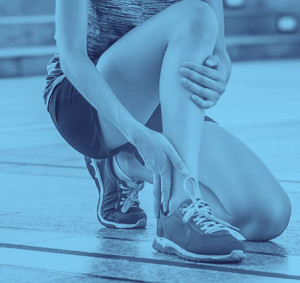Selecting the Right Netball Shoe – Podiatrist Nat Laurie discusses all things netball
Whether you’re a gun netballer looking to get the best out of your game, or a social player wanting to have fun and stay fit and healthy, selecting the right netball shoe can be overwhelming if you don’t know what to look for. With so many options out there, it can be difficult to know whether you are making the right choice to protect your feet and your body. Is durability the most important feature for you? Do you need something lightweight, so you can run the game out without adding extra work for your feet? Do you have a long history of injuries, and support and stability ranks highest on your priority list?
Ultimately, each and every player is different, and considering your individual circumstances is vital to selecting the best shoe for your feet. Keeping this in mind, we have broken down the key aspects of a netballers game, and their needs, to help you make a more informed decision when it comes to the right netball shoes for you.
Key questions to ask when you are looking for a netball shoe for you (or your child):
What position do you predominantly play?
Midcourt players need to be able to run and move constantly. A stiff shoe designed purely for side-to-side movements can impact your running technique and strength. A shoe that mimics a typical light-weight runner, with a court-based sole for better durability and support is ideal.
End-court players need to be able to pivot and change directions even more frequently. A softer mid- and outsole in a lighter weight shoe can wear-out faster in these conditions, meaning you may need to change your shoes more often as the wrong ones could wear out quicker.
What surface will be playing on?
Outdoor surfaces require a more durable outsole, which can add weight to the shoe, but help it last longer. This may include a stronger density outsole, or an outsole that wraps up around the edges of your shoe to protect the softer middle layer.
If you play a combination of both, it is worth considering if durability is a high priority for you, or whether having an indoor pair and an outdoor pair may help you more in the long-run
Does the shoe have lateral stability?
A typical running shoe does not have the same level of lateral stability that a netball shoe can provide. Standard runners are designed for forward movements, but they are not designed for side-to-side movements, or quick changes in direction.
Typically, netball shoes have stronger grip and design for both multi-directional and pivoting movements, with a more durable upper material to stop your foot from sliding over the top of the shoe. This means that the netball shoe can support your foot in your on court movements, while also limiting excess movements that can put you more at risk of an injury.
Does the shoe fit your current support – ie. orthoses, bracing, etc?
his may sound simple enough, but it is important to check the fit of ankle braces, orthoses, and any additional changes you might be making on the court to help protect your feet when you are trying a new pair of shoes on.
A shoe that requires an orthotic will usually need a removable insole, to allow for the thickness of the orthotic. It is important to check the depth of the shoe both at the heel and the forefoot for this, as too much room (or not enough room) in any part of the shoe can lead to blisters and pain if not managed effectively
A shoe that requires an ankle brace usually requires a broader heel, to allow for the extra space the brace will take up. However, if the shoe is too wide at the heel, this can encourage slipping and sliding within the shoe, which can significantly impact your stability and the effectiveness of the shoe (and the brace).
Other considerations include the lacing eyelets. If you are someone who lock-laces their shoes, or changes their lacing technique to accommodate a high arch for example – will you be able to do these techniques in this shoe as well?
Our podiatrists are kept up to date with the latest sporting footwear on the market and can guide you to matching the best footwear to your foot type, previous injuries and activities.
Want to know more – chat to us here
